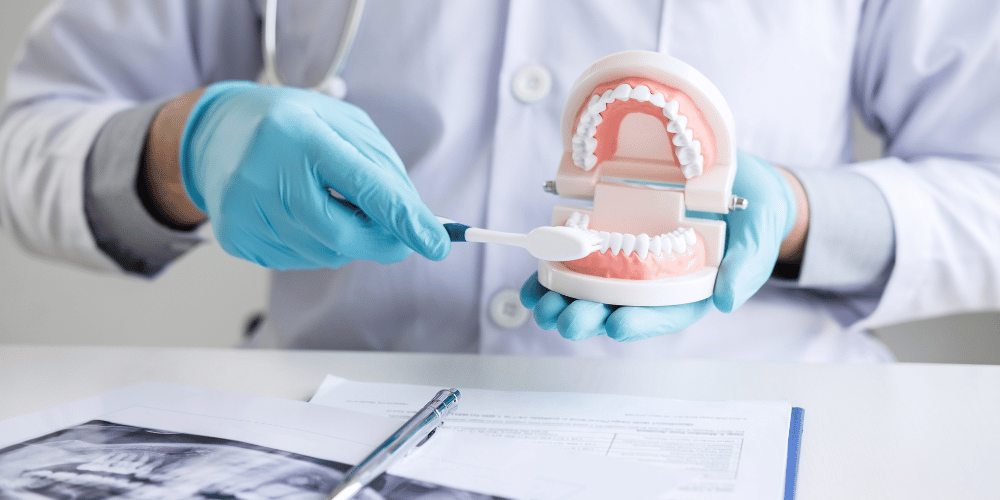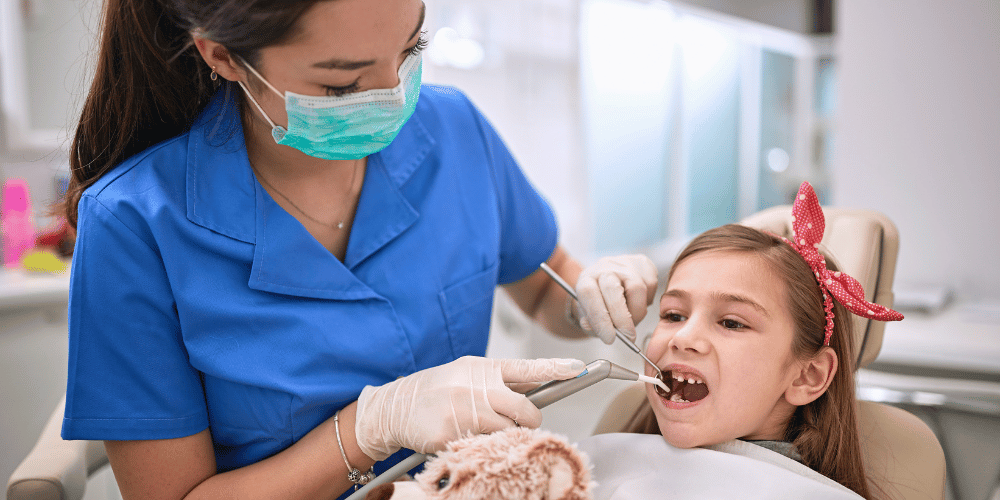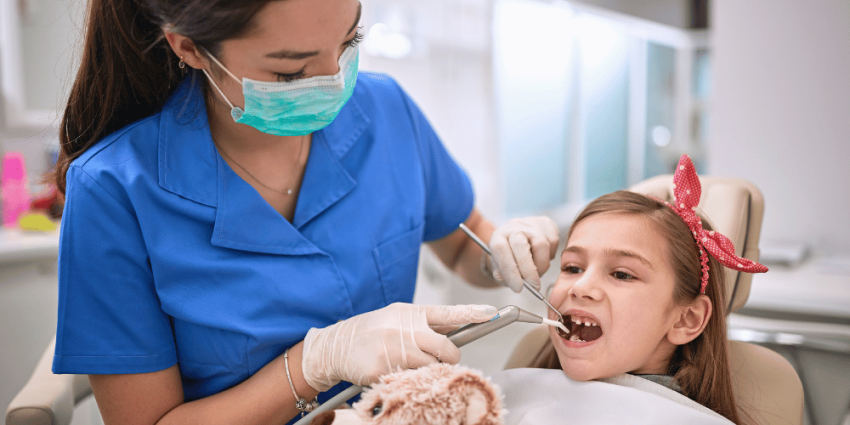Visiting the dentist can often be an intimidating and scary experience. We all have different fears associated with dental visits, from the fear of needles to the fear of pain. One common fear is that of a chipped tooth, which can cause a great deal of discomfort and embarrassment. But how exactly does a dentist fix a chipped tooth? In this blog post, we will discuss the various processes a dentist may use to repair your chipped tooth, including bonding, veneers, crowns and more. So if you’re wondering how to get your smile back to looking its best after a chipped tooth, read on!
What is a chipped tooth?
A chipped tooth is a tooth that has been damaged, usually by breaking off a small piece. The damage can be caused by biting on something hard, grinding your teeth, or an injury to the mouth. Depending on the extent of the damage, a chipped tooth may just be a cosmetic issue or it could be a serious dental concern.
If the chip is small and does not affect the function or alignment of the tooth, then your dentist may just smooth out the edges of the tooth to prevent further damage. If the chip is larger or if it affects the alignment of the tooth, then your dentist may recommend repairing the tooth with bonding, veneers, or crowns. In some cases, a chipped tooth may need to be extracted if it cannot be repaired.

Causes of a chipped tooth
A chipped tooth can have a few different causes. It could be due to an injury, such as a fall or a blow to the face. It could also be the result of biting down on something hard, or simply from aging and wear and tear. Whatever the cause, it’s important to see a dentist as soon as possible to fix the problem.
If the chip is small, the dentist may be able to simply smooth it out with a file. If the chip is more significant, they may need to use bonding material or veneers to repair it. In some cases, a dental crown may be necessary. The best way to determine what type of treatment you need is to consult with your dentist.
When to see a dentist for a chipped tooth
If you have a chipped tooth, it’s important to see a dentist as soon as possible. A chipped tooth can be very painful and can cause serious damage to your mouth if it’s not treated right away.
If you have a chipped tooth, you may feel pain when you bite down or when you eat hot or cold foods. You may also see a crack in your tooth. If you have a chipped tooth, it’s important to see a dentist right away so that they can fix it before it gets worse.
There are two main ways that dentists can fix a chipped tooth: bonding and veneers. Bonding is when the dentist uses a special glue to attach a piece of composite resin to the damaged tooth. Veneers are thin pieces of porcelain that are glued to the front of the tooth. Both bonding and veneers will make your tooth look like new again.
If you have a chipped tooth, don’t wait to see a dentist. The sooner you get it fixed, the better!
Prevention of a chipped tooth
A chipped tooth can be very painful, and it can also be a cosmetic issue. If you have a chipped tooth, you may be wondering how you can prevent it from happening again. There are a few things you can do to help prevent a chipped tooth:
-Brush your teeth twice a day with a soft-bristled toothbrush.
-Floss your teeth every day.
-Avoid chewing on hard objects, such as ice or hard candy.
-Wear a mouthguard if you play sports.
If you do end up with a chipped tooth, don’t panic! A dentist can usually fix it with one of the following procedures:
-Bonding: This is when the dentist applies a tooth-colored resin to the damaged area of the tooth and then uses a special light to harden the resin.
-Veneers: These are thin shells of porcelain that are custom made to fit over the front of the teeth.
-Crowns: A crown is like a cap that goes over the entire tooth. It can be made out of metal, ceramic, or porcelain.
If you take care of your teeth and avoid biting down on hard objects, you should be able to prevent most cases of chipping. However, accidents happen and if you do chip your tooth, see your dentist right away so they can help restore your smile!
Chipped teeth happen more often than you think
Chipped teeth happen more often than you think. In fact, according to the American Dental Association, one in eight Americans have chipped a tooth in the past year. There are many reasons why teeth can become chipped, from biting into hard foods to playing sports without wearing a mouthguard.
If you have a chipped tooth, it’s important to see a dentist as soon as possible. Depending on the extent of the damage, your dentist may recommend one of several treatment options. For minor chips, they may simply smooth out the edges of the tooth with a file. For more significant chips, they may use bonding or veneers to restore the tooth’s appearance. In some cases, a dental crown may be necessary.
If you have a chipped tooth, don’t wait to get it treated. Contact your dentist right away to discuss your treatment options.
The severity of a chipped tooth
A chipped tooth is not a medical emergency, but it is still important to see a dentist as soon as possible. The severity of a chipped tooth depends on the size and location of the chip. A small chip on the front edge of a tooth may not be very noticeable, but a large chip on the back of a tooth can be quite painful. If the chip is large or if it affects the nerve of the tooth, you may need a root canal to treat the tooth.
How to avoid chipping your teeth
There are a few things you can do to avoid chipping your teeth:
1. Avoid hard foods: Hard candy, nuts, and ice can all put you at risk for chipping a tooth. If you must eat these types of foods, be sure to bite into them carefully and use your teeth sparingly.
2. Use proper dental hygiene: Be sure to brush and floss regularly, as this will help keep your teeth strong and less likely to chip. In addition, avoid using your teeth as tools (for example, don’t open bottles with them) as this can put undue stress on them and lead to chips.
3. See your dentist regularly: Regular dental checkups and cleanings can help spot any weak spots in your teeth that may be more susceptible to chips. Your dentist can also provide you with tips on how to best protect your teeth from damage.

How a dentist fixes a chipped tooth
A chipped tooth is one of the most common dental problems. It can happen due to an accident or injury, or simply from biting down on something hard. Regardless of the cause, a chipped tooth can be quite painful and it’s important to see a dentist as soon as possible.
The first step is to assess the severity of the damage. If the chip is small and does not affect the structure of the tooth, then your dentist may simply smooth it out with a file. However, if the chip is larger or has caused structural damage, then your dentist will need to take more significant measures.
One option is to use bonding material to rebuild the damaged portion of the tooth. This material is matched to the color of your natural teeth and then hardened with a special light. Bonding can be an effective way to repair a small chip or crack.
Another option for repairing a chipped tooth is via veneers. Veneers are thin pieces of porcelain that are bonded to the front surface of your teeth. They can be used to cover up chips, cracks, and other imperfections. Veneers are also often used for cosmetic purposes, such as making teeth look whiter or straighter.
If you have suffered a more serious injury that has resulted in a large chip or crack, then your dentist may recommend a crown. A crown encases the entire tooth and helps to restore its original shape and size. Crowns are usually made from porcelain, but other materials such as gold and stainless steel can also be used.
No matter the cause of your chipped tooth, it’s important to get it taken care of as soon as possible. The sooner you visit a dentist, the more likely you are to save the tooth and avoid further pain or damage.
Conclusion
A chipped tooth can be a major source of discomfort, but fortunately there are several ways that dentists can fix this problem. Depending on the severity of the chip, your dentist may suggest dental bonding, crowns or veneers to restore your tooth’s appearance and functionality. If you have recently experienced a chipped tooth, it is important to schedule an appointment with your dentist so they can evaluate and recommend the best course of action for you.










Leave a Reply